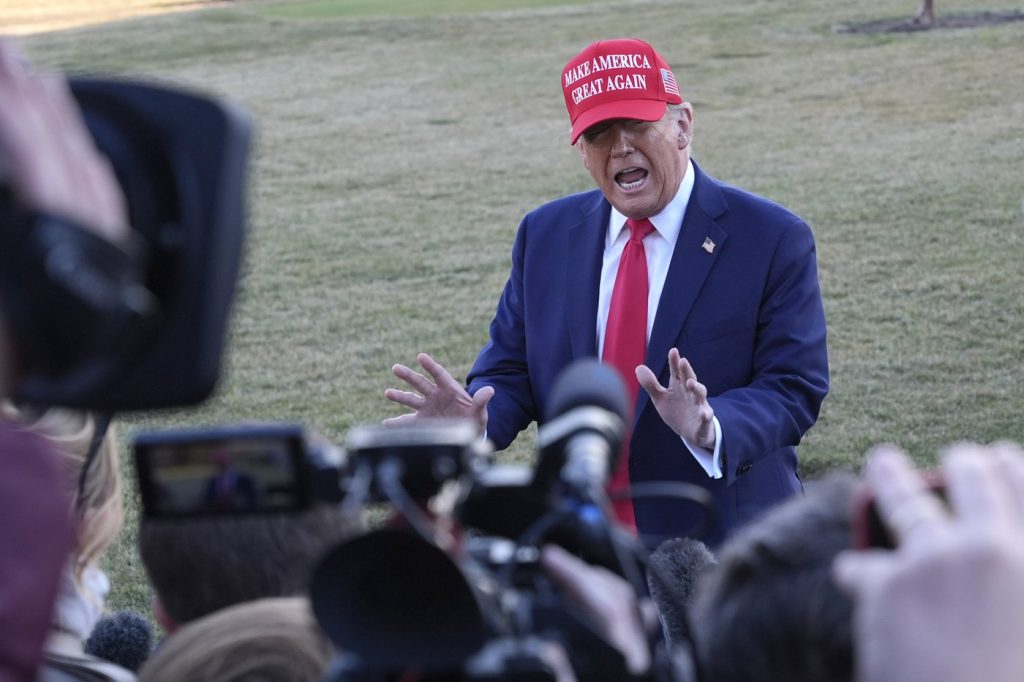The Canadian Press has reported significant developments in Canada and its trade relations with the United States, primarily focusing on the economic implications of U.S. President Donald Trump's newly instituted tariffs. As the deadline for Trump's economy-wide tariffs passed, Canada finds itself facing a new and uncertain reality marked by a potential trade war.
Trump's executive order, which imposes a 25 percent tariff on Canadian goods and a 10 percent levy on Canadian energy, took effect at 12:01 a.m. ET. In response, Prime Minister Justin Trudeau criticized the tariffs as "unjustified" and has vowed that Canada will retaliate with countermeasures. The immediate Canadian response will involve tariffs on $30 billion worth of American products, with an additional $125 billion of American goods subject to tariffs coming into effect after a 21-day period.
Trudeau has scheduled a press conference in Ottawa for Tuesday morning, where he will be accompanied by Finance Minister Dominic LeBlanc, Foreign Affairs Minister Mélanie Joly, and Public Safety Minister David McGuinty, to outline Canada's strategic response to the U.S. tariffs.
In British Columbia, Finance Minister Brenda Bailey is preparing a budget expected to provide the province with a financial buffer against the "uncertainty and disorder" caused by Trump's presidency. The budget release coincides with the announcement of Trump's tariffs on Canadian goods and energy. Bailey has stated that these tariffs were unexpected and have already altered British Columbia's financial landscape, prompting the NDP government to cancel its election promise for a $1,000 grocery rebate, and to freeze public-sector hiring amid forecasts of a significant $9.4 billion deficit this fiscal year.
Meanwhile, Canadian travelers looking to purchase items in U.S. dollars are encouraged to explore various options to optimize savings on currency conversion as the Canadian dollar trades at about 70 cents to the U.S. dollar. Travel expert Barry Choi explains that using credit cards can often be the most economical method, typically incurring foreign exchange fees of around 2.5 percent. Although traditional debit cards incur higher fees, some online financial institutions offer no-fee debit cards for foreign purchases, presenting a valuable alternative for consumers.
Concerns have also been raised regarding staffing shortfalls among Canada Border Services Agency (CBSA) officers as the country braces for the impact of Trump's tariff threats. Mark Weber, national president of the Customs and Immigration Union, has indicated that the agency currently faces shortages of about 2,000 front-line officers, compromising operational capabilities at various ports of entry just as the tariffs are expected to be enacted.
In Quebec, the provincial government is embroiled in a controversy described as potentially the biggest political scandal since the Charbonneau commission. This scandal centers on the digital transformation of the province’s auto insurance board, which has suffered half a billion dollars in cost overruns. Following the release of a critical auditor general's report, Premier François Legault announced a public inquiry to investigate the matter further, emphasizing the province’s commitment to transparency and accountability amid growing public outrage.
This situation continues to evolve as Canada navigates its economic relationship with the United States under the backdrop of escalating tensions stemming from Trump's tariff policies, while preparing for the broader implications of a possible trade war and addressing domestic challenges, including public scrutiny over governmental operations in Quebec.










